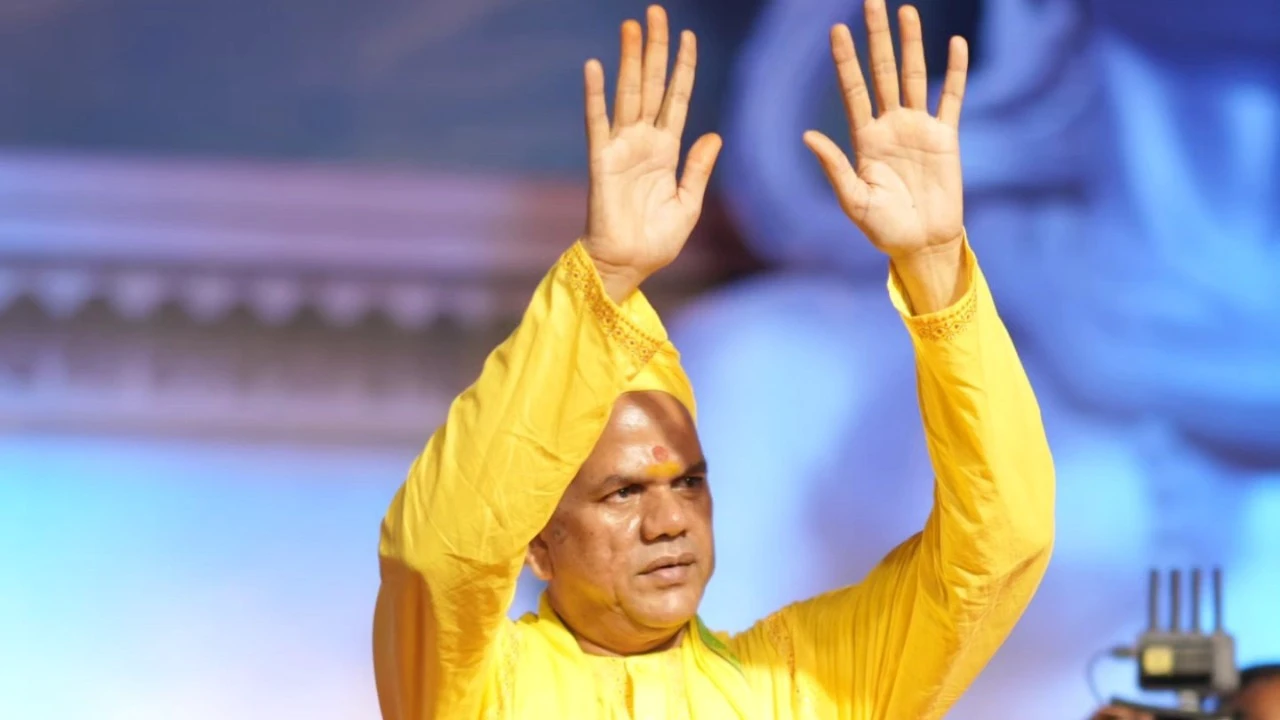Spiritual leader Ravi Shankar Maharaj, popularly known as Rawatpura Sarkar, has returned to the spotlight following a case registered by the Central Bureau of Investigation (CBI) involving the medical college under his trust.
The CBI has arrested six individuals, including three doctors, for allegedly accepting a bribe of Rs 55 lakh in exchange for issuing a favourable inspection report to the Rawatpura Sarkar Medical College in Chhattisgarh.
Ravi Shankar Maharaj is the chairman of this medical college, and his name has once again drawn public attention amid the controversy.
Widely regarded in Madhya Pradesh and Chhattisgarh, Rawatpura Sarkar is known not only for his religious influence but also for his expanding network of educational and healthcare institutions.
Born in the village of Chipri in Tikamgarh district, Bundelkhand, Ravi Shankar Maharaj’s early life was marked by economic hardship. He was initially enroled by his parents in Ramraja Sanskrit Vidyalaya in Orchha to become a priest.
However, he discontinued his education and later began spiritual practices at a Hanuman temple in Rawatpura village near Lahar in Bhind district.
It is believed that he attained spiritual powers at this temple, after which he began receiving devotees. As the following grew, space constraints at the temple led to the establishment of the expansive Rawatpura Dham ashram.
In 2000-2001, he established the Rawatpura Sarkar Lok Kalyan Trust, which became the foundation for launching several educational and healthcare institutions across Madhya Pradesh and Chhattisgarh. Under this trust, multiple schools, Sanskrit institutions, blood banks, nursing colleges, pharmacy colleges, and hospitals have been set up.
The trust also runs Rawatpura Sarkar Medical College in Raipur and Rawatpura Sarkar University in Bastar, among other establishments in Uttar Pradesh, Madhya Pradesh, and Chhattisgarh.
While the investigation into the bribery case is ongoing, the spotlight on the spiritual figure and his sprawling network continues to raise questions about the growing intersections of faith, education, and public accountability.
